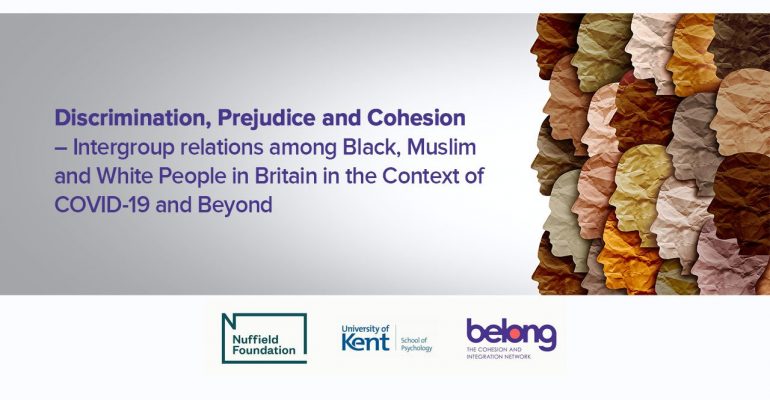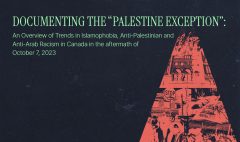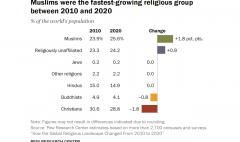Report: Discrimination and Lack of Unity between Muslim, Black and White People in the UK
August 10, 2022 2023-05-06 16:25Report: Discrimination and Lack of Unity between Muslim, Black and White People in the UK

Report: Discrimination and Lack of Unity between Muslim, Black and White People in the UK
In July 2022 the report “Discrimination, Prejudice and Cohesion – Intergroup relations among Black, Muslim and White People in Britain in the Context of Covid-19 and Beyond” was published as part of the Beyond Us and Them project, “a series of national and sub-national surveys examining perceptions and experiences of social cohesion across Britain between May 2020 and July 2021”. The report aims to better understand and to compare the attitudes held towards, Black, Muslim and White people in the UK during the pandemic by drawing surveys data on prejudice, experiences of discrimination and intergroup contact. It is a collaborative endeavor, authored by Dominic Abrams Fanny Lalot and Hilal Ozkeçeci, (Centre for the Study of Group Processes, University of Kent), and Jo Broadwood, Kaya Davies Hayon and Andy Dixon (Belong – The Cohesion and Integration Network, a charity and membership organization with the belief in a more integrated, less divided society) …61 Focus groups and 256 one-to-one semi structured interviews were then conducted in all sampling areas. The four primary interviewers were women, from different ethnic backgrounds, with one identifying as having a disability.
With ethnic differences in mortality and hospitalization for Covid-19 rising, increased awareness of racial discrimination following the murder of George Floyd, and stigmatization and scapegoating being regularly reported, attention needed to be paid to “assessing impacts on the perceptions and self-perceptions of Black and Muslim people in response to both media coverage and government actions”.
Key Findings:
1. Perceptions of division and unity between different social groups
2. Perceptions of discrimination as a serious issue
These findings are indicative of “cumulative rather than multiplicative effects of belonging the multiple groups that face discrimination”. As shown in finding 2E, respondents do not generalize the sense of seriousness against their own group to their perception of seriousness of discrimination towards others. The authors further note that there seems to be some social of psychological obstacles to people’s perceptions across different groups and categories. In turn, this may make it more difficult to reach consensus on the overall impact of prejudice and discrimination and the policies required…
Read the full report HERE.
Continue reading at: euro-islam.info








